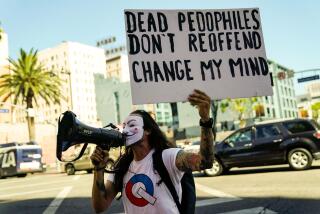Using #WeGotBinLaden to see what we believe on Twitter, and why
How do we separate fact from rumor on Twitter, and how do we decide which Tweeters to trust?
That question is at the heart of a study conducted by researchers at Georgia Tech. The study not only examines how news of Osama bin Laden’s death moved rapidly across the social media platform, but also looks at what led the Twitterverse to believe the news to be true, prior to mainstream media confirmation.
The Bin Laden news story was a perfect case study to choose for this research because it was a major news story that broke on Twitter.
As you may recall, U.S. Special Forces killed Osama bin Laden on May 1, 2011, sometime between 4 and 4:30 p.m. EST, according to a timeline provided by The Guardian. At 7:01 p.m. the same day, President Obama was briefed that there was a “high probability” that Bin Laden had been killed, The New York Times reports.
Three and half hours later, news of Bin Laden’s death broke on Twitter when Keith Urbahn, aide to former Secretary of Defense Donald Rumsfeld (and notably not a journalist) tweeted, “So I’m told by a reputable source that they have killed Osama bin Laden. Hot Damn.”
Eight minutes later, a CBS producer (@jacksonjk) tweeted her own confirmation.
Then New York Times reporter Brian Stelter, who has a large Twitter following, retweeted both reports and the story went viral.
Much of this has already been reported elsewhere, but what the Georgia Tech team wanted to know was how many people trusted the news they had read on their Twitter feed, and how likely they were to share the news as if it were fact.
To find out, the researchers examined 400,000 tweets sent in a two-hour period starting just minutes before Urbahn’s infamous tweet.
They sorted the tweets into three categories -- certain, uncertain and irrelevant.
What they found is that just minutes after Urbahn’s tweet, 50% of the people tweeting about the death of Osama bin Laden were tweeting about it as if it were a certain fact.
By the time the television stations started reporting on Bin Laden’s death, at 10:45 p.m., 80% of tweets on the subject were categorized as certain.
In an interview with The Times, Mengdie Hu, a PhD candidate in the School of Interactive Computing, said she was surprised by the number of people who sounded certain that Bin Laden was dead despite lack of mainstream media confirmation.
I asked Hu if her research shows that people will believe anything they read on Twitter, but she said she doesn’t think so.
“So on Twitter and on social media in general, there are lots of rumors, but also truths,” she said. “So how do we know if something is really true or not?”
“In this research the original people tweeting about Osama bin Laden’s death was a guy from the State Department and news reporters,” she added. “These are credible sources.”
And here’s one other insight the research provided: Hu found that the first journalists who tweeted news of Bin Laden’s death tweeted it through their personal Twitter accounts. “Rather than running to tell their bosses, they were running to tell their Twitter followers,” she said.
ALSO:
Who owns your stuff on Google cloud?
Teens text for study, don’t hold back on profanity, sex drugs
Zerg Rush Easter egg and other great time wasters from Google
More to Read
Inside the business of entertainment
The Wide Shot brings you news, analysis and insights on everything from streaming wars to production — and what it all means for the future.
You may occasionally receive promotional content from the Los Angeles Times.











